TOTAL1™ for Astigmatism Contact Lenses
OUTSTANDING COMFORT1
MEETS EXCELLENT STABILITY2
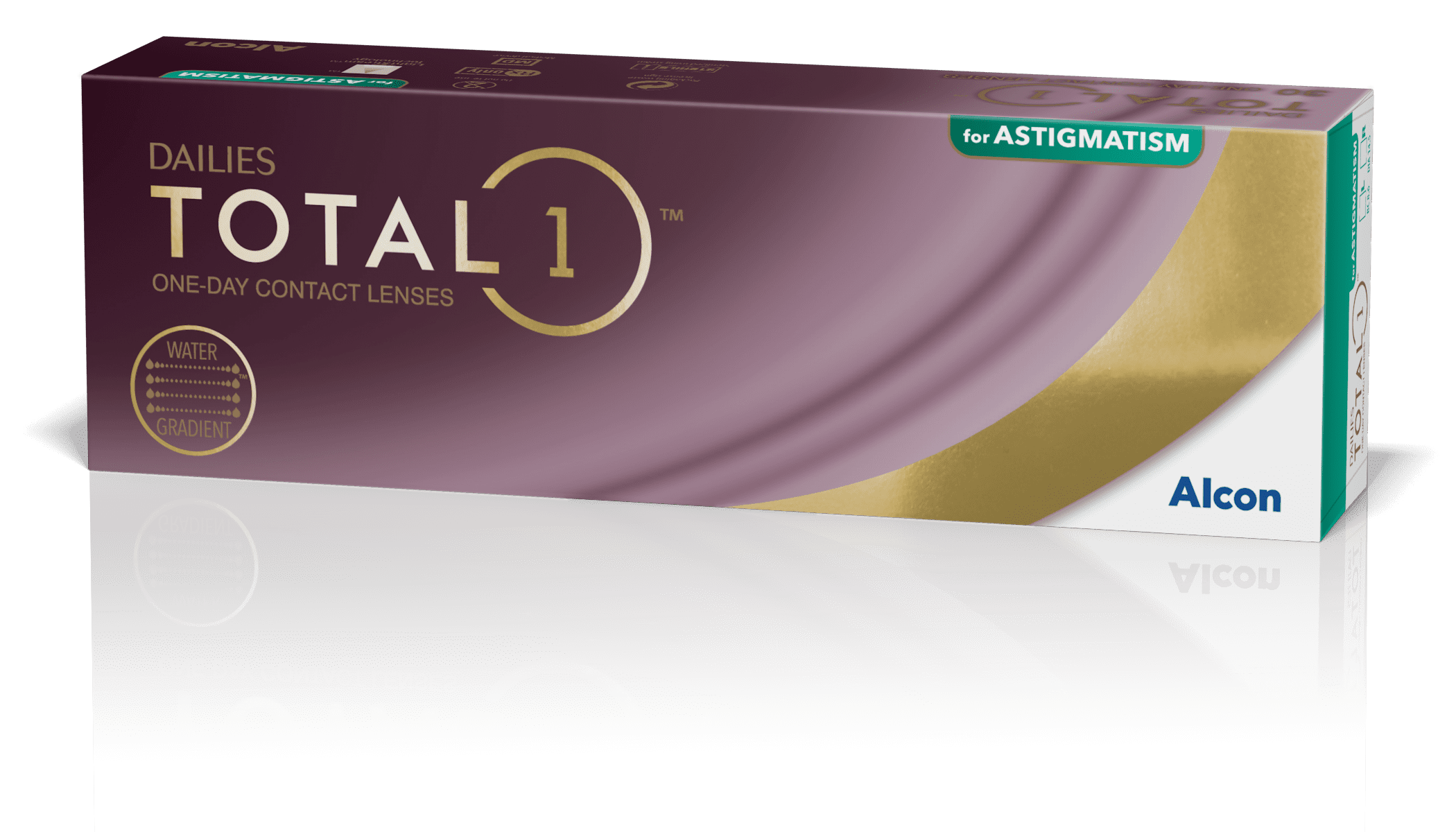
Seize the Toric Opportunity




*>0,75D in at least one eye.
How do you fit more toric lenses?
With comfort1 and stability.2
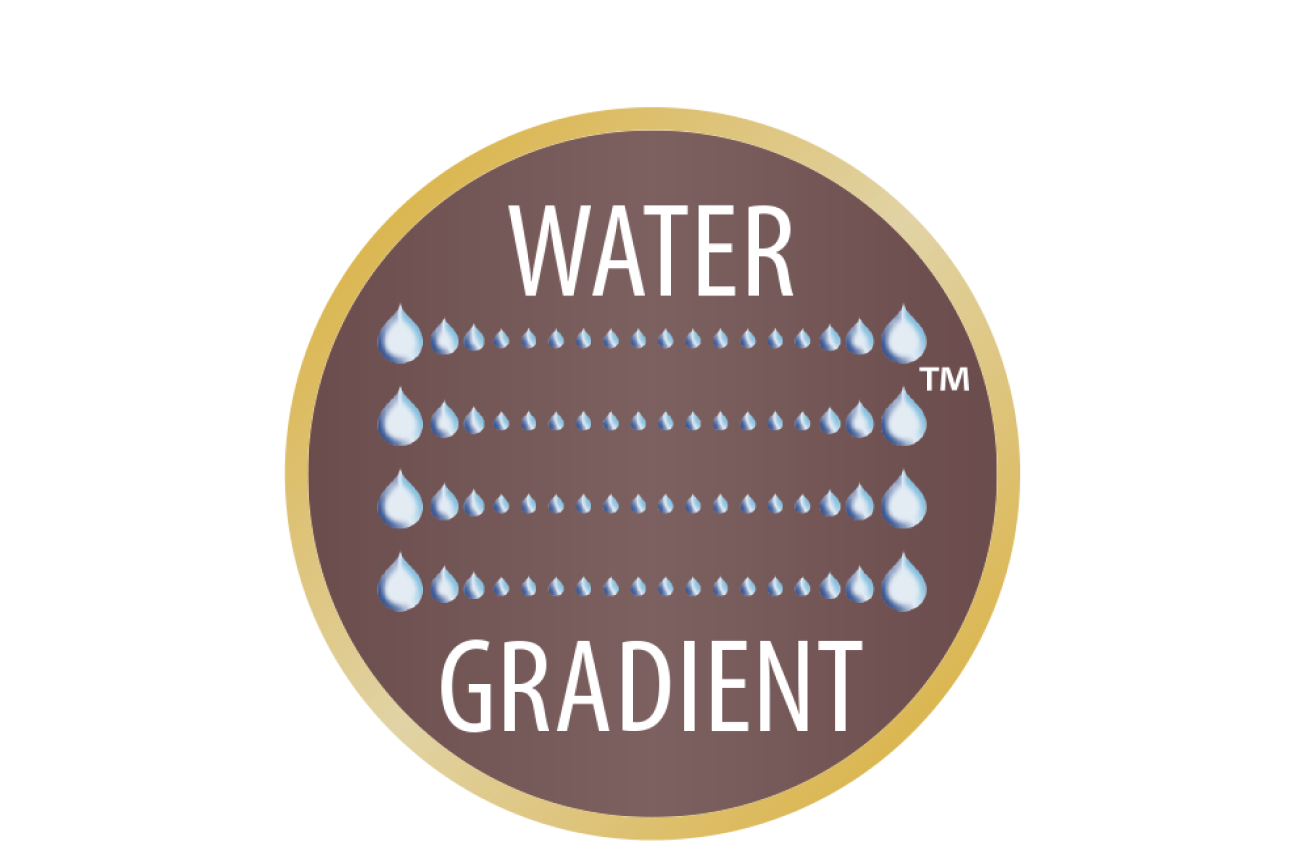
The first and only daily disposable Water Gradient toric contact lenses for outstanding comfort1
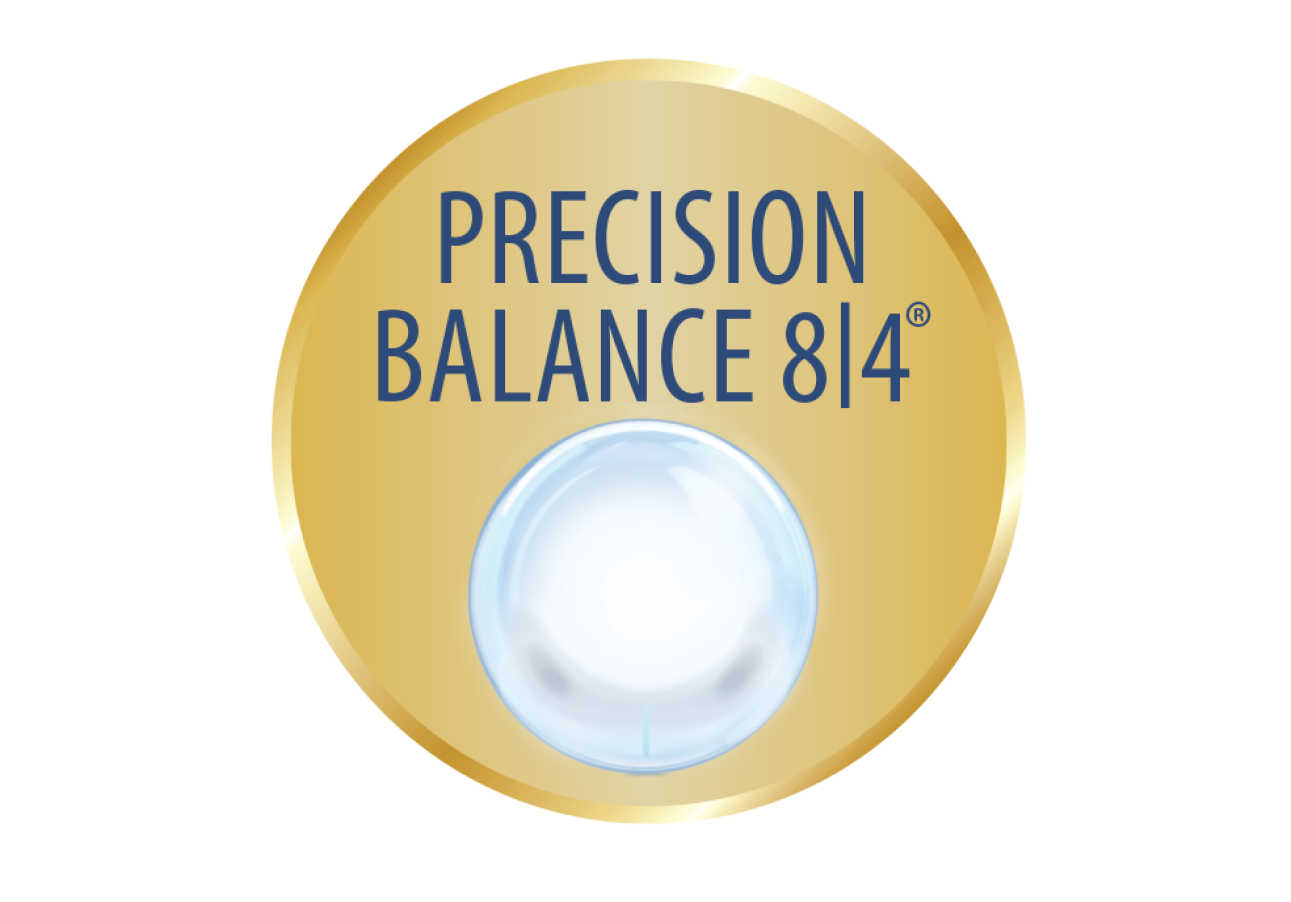
Proven PRECISION BALANCE 8|4® lens design for excellent stability2
The technology behind outstanding comfort1 and excellent stability.2


Water Gradient Technology
- Gradual transition in water content from core to surface5,6
- Water content approaches 100% at the lens surface5,6*
- Enables a combination of high breathability and exceptional comfort1,7


PRECISION BALANCE 8|4® Lens Design
TOTAL1™ for Astigmatism delivers what patients want


Outstanding overall comfort1

Exceptionally stable vision1


Clinically shown to provide better than 20/20 vision with excellent stability1
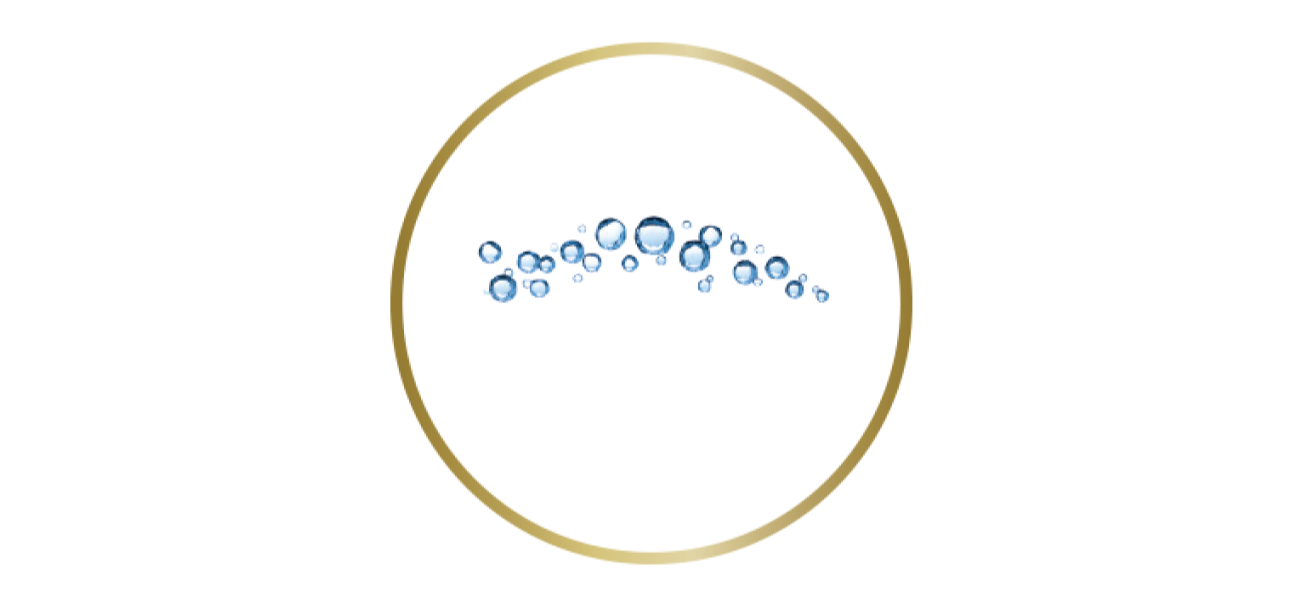

SmarTears® Technology
Releases an ingredient found in natural tears that helps to stabilise the lipid layer of the tear film.8


UV/HEVL Filtering
Blocks more than 98% of UVA and UVB rays* and reduces the amount of high energy visible light (HEVL) radiation that reaches the retina by about 33%.**
*UV absorbing contact lenses are NOT substitutes for protective UV absorbing eyewear, such as UV absorbing goggles or sunglasses because they do not completely cover the eye and surrounding area. The patient should continue to use UV absorbing eyewear as directed.
**There is no demonstrated clinical benefit to a 33% reduction in visible light at wavelengths below 450 nm.
TOTAL1™ for Astigmatism Specifications
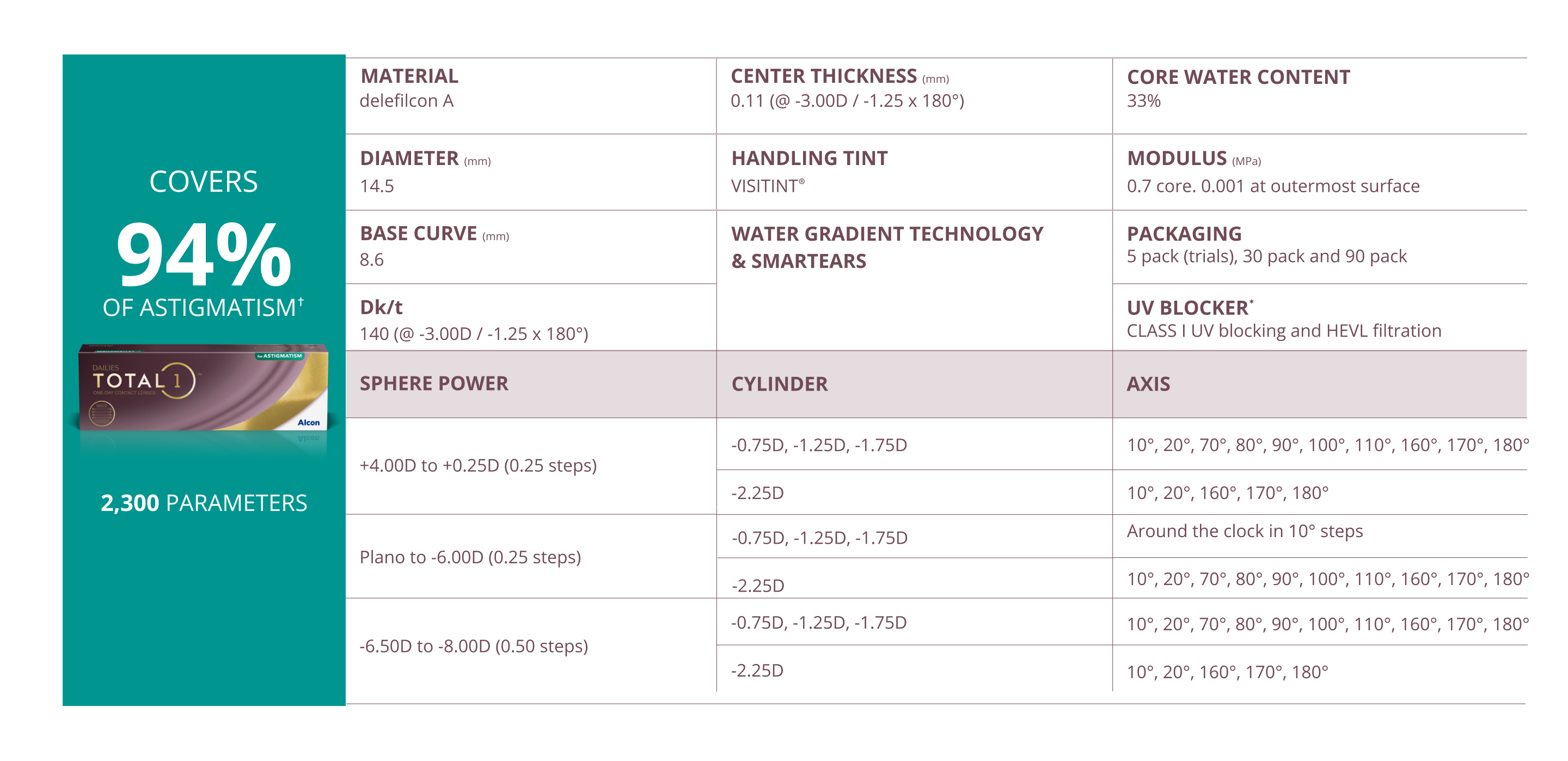
*UV-blocking contact lenses are NOT substitutes for protective UV-blocking eyewear such as UV-blocking goggles or sunglasses because they do not completely cover the eye and surrounding area.
†Coverage of astigmatic patients with a -2.50D cylinder or lower
Reference Links
1. In a clinical trial to assess overall performance of DAILIES TOTAL1™ for Astigmatism lenses where n=134 patients; Alcon data on file, 2021. Available on request. [REF-13451]
2. In a clinical trial to evaluate stability of axis orientation of DAILIES TOTAL1™ for Astigmatism lenses where n=47; Alcon data on file, 2020. Available on request. [REF-09861]
3. Luensmann D, Schaeffer JL, Rumney NJ, Stanberry A, Walsh K, Jones L. Spectacle prescriptions review to determine prevalence of ametropia and coverage of frequent replacement soft toric contact lenses. Cont Lens Anterior Eye. 2018 Oct;41(5):412-420.[REF-09788]
4. CLI EC Market Share Reports Q3 2021. YTD 2021 data as of Q3. Sales are based on ex-factory dollars sold MAT, based on average retailer GM% of 50%. [REF-14685]
5. Thekveli S, Qui Y, Kapoor Y, et al. Structure-property relationship of delefilcon A lenses. Cont Lens Anterior Eye. 2012;35(Supp 1):e14.[REF-09690]
6. Angelini TE, Nixon RM, Dunn AC, et al. Viscoelasticity and mesh-size at the surface of hydrogels characterized with microrheology. Invest Ophthalmol Vis Sci. 2013;54:E-abstract 500.[REF-03732]
7. Based on in vitro measurement of thickness profiles on unworn lenses; Alcon data on file, 2019. Available on request. [REF-13451]
8. Pitt WG, Jack DR, Zhao Y, Nelson JL, Pruitt JD. Loading and release of a phospholipid from contact lenses. Optom Vis Sci. 2011;88(4):502-506. [REF-04781]
ALWAYS READ THE LABEL AND FOLLOW THE DIRECTIONS FOR USE.
All content on this website is for informational purposes only, always talk to your health professional regarding your eye health or medical conditions.
